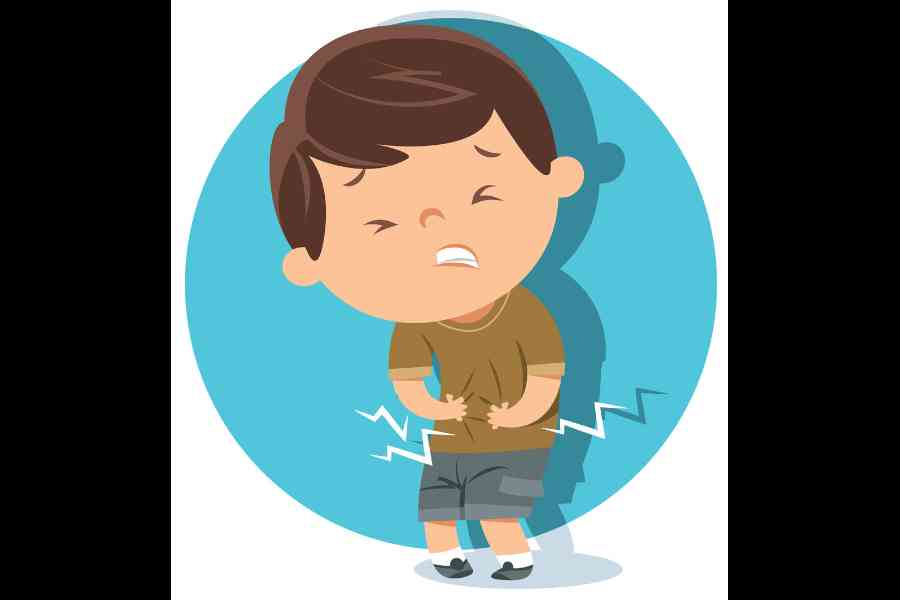Everyone occasionally experiences loose motions. It usually settles in a day or two with or without treatment. Loose motions should be taken seriously in individuals under a year or over 65 years of age as these vulnerable age groups are more prone to dehydration. The appearance of scanty dark-coloured urine, excessive thirst, sunken eyes and loss of skin elasticity are signs that dehydration has set in. Any diarrhoea accompanied by vomiting (which is likely to foil attempts at adequate replenishing fluid intake), along with high fever, dizziness or fainting, or with blood (fresh or black) in the stools, should also be taken seriously. At any age, if loose motions last more than three days, then home remedies should be abandoned in favour of a medical opinion.
Sometimes loose motions have an apparent reason, such as consuming outside (especially street) food or drinking impure water. In these cases, antibiotics may be needed along with supportive treatment for fever, pain and fluid loss.
Investigations may be needed if the diarrhoea is chronic and occurs 3-4 times a day continuously for a month. It may be due to a bacterial infection like salmonellosis or intestinal parasites like amoeba or giardia. It may be due to a change in intestinal flora brought about by long-term antibiotic use or cancer medication. Some lifestyle diseases, like diabetes, produce nerve damage that can cause chronic diarrhoea. Untreated hyperthyroidism increases intestinal motility.
Both coffee and tea can cause chronic diarrhoea because of the laxative potential of caffeine. Even caffeinated cola drinks can have a similar effect. In an attempt to avoid sugar, some foods and beverages are sweetened with sorbitol, mannitol, lactulose or high concentrations of fructose. These are not absorbed and can produce an osmotic diarrhoea.
Sometimes people have an intolerance to certain foods and are unable to digest them. Common offenders include milk and wheat. The enzymes necessary to break the food down into easily absorbed molecules may be lacking or deficient. As the unabsorbed food remains in the intestine, it attracts water and causes diarrhoea. This intolerance may be present from birth or appear later in life.
Alcohol may speed up gut motility and cause diarrhoea. Regular drinking can cause irritation and inflammation of the mucosa of the colon. It gets damaged, and the balance of good and bad gut flora gets disturbed. The inflamed mucosa does not absorb fluid, resulting in diarrhoea.
Chronic diarrhoea may require tests to reach a diagnosis. If you are lucky, the cause is a treatable, curable condition like hyperthyroidism or uncontrolled diabetes. Otherwise, it may be a part of the spectrum of coeliac disease or IBS (irritable bowel syndrome). There may be intolerance to certain foods like dairy products or the gluten in wheat. Sometimes the diarrhoea may alternate with constipation and be accompanied by cramping abdominal pain and bloating. The symptoms tend to occur continuously. People with IBS have deranged gut motility and are also hypersensitive to pain.
IBS is a common condition, affecting 10-15 per cent of the population. There may be a family history of gut symptoms. It is possible to control the symptoms, but there is no permanent cure. Sometimes the person may identify trigger foods like milk, curd or cheese. Others are sensitive to wheat.
Here are some lifestyle changes you can make to manage IBS:
n Stay hydrated. Drink at least 3-4 litres of water daily
n Limit caffeine. Cut down on coffee, tea and cola
n Avoid alcohol
n Exercise regularly. Aim for 150 minutes of moderate activity per week to improve gut motility
n Manage stress with yoga, meditation, and breathing exercises
n Take medications as prescribed.
The writer has a family practice at Vellore and is the author of Staying Healthy in Modern India. If you have any questions on health issues please write to yourhealthgm@yahoo.co.in










